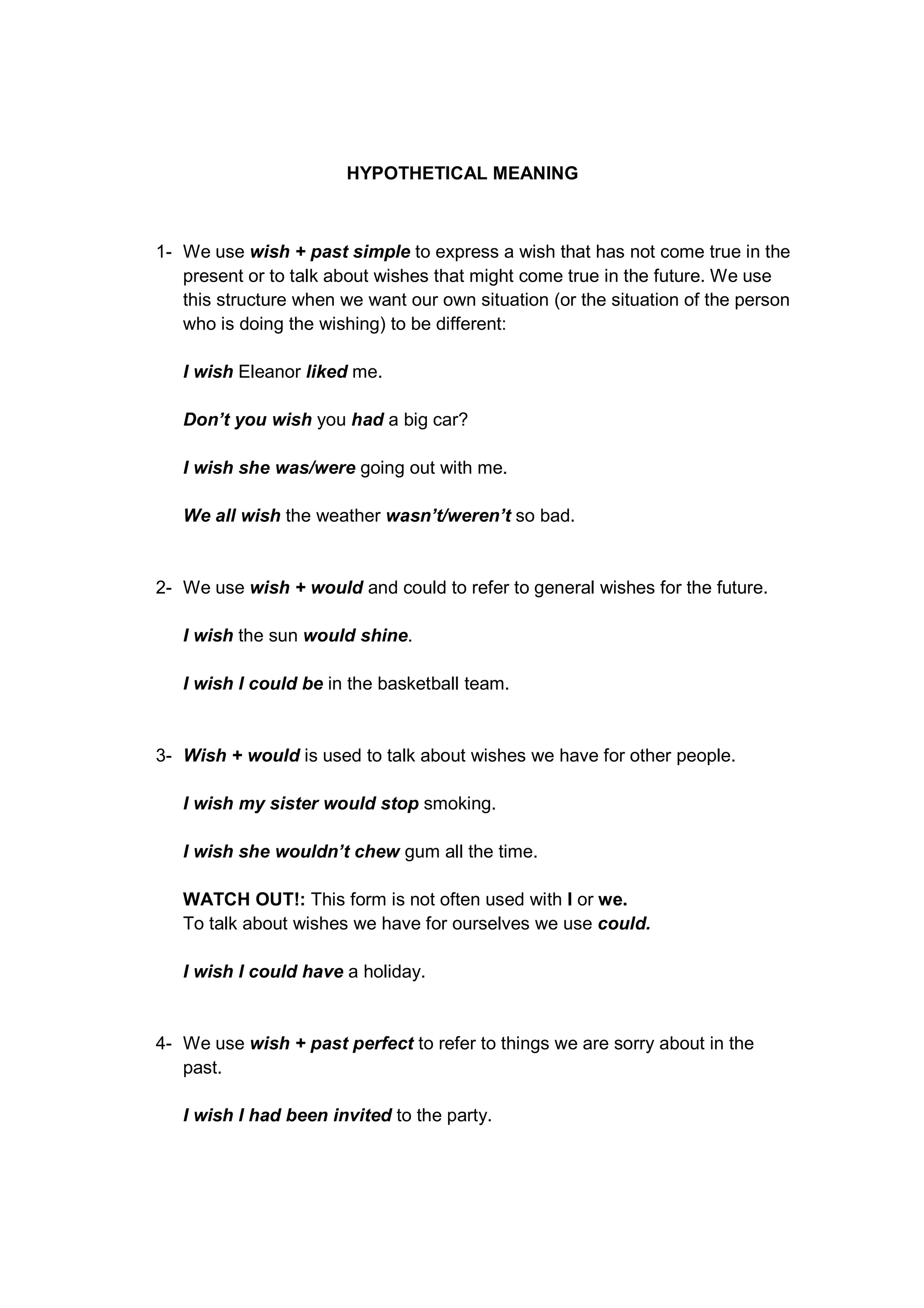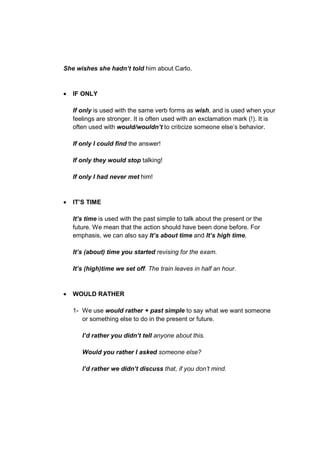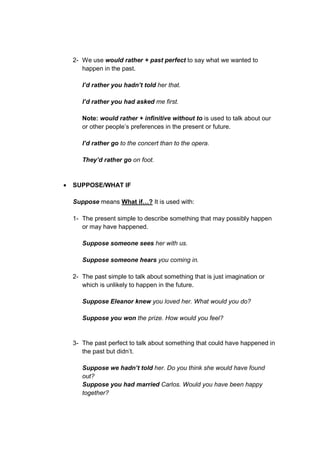The document discusses different verb forms used with common expressions involving wishes, preferences, hypothetical situations, and the passage of time. It explains that "wish + past simple" expresses wishes that have not come true, "wish + would/could" refers to general future wishes, and "wish + past perfect" refers to past regrets. It also outlines the similar uses of "if only" and how "it's time" refers to present or future actions that should have happened earlier.



